Cosmos
ATOM
14.08
%
Normal Reward APR
1.0
%
Staking Commission
Layer 1
Protocol Category
PoS
Staking Type
Off-Chain
Governance
Validator
cosmosvaloper1ed5a27kfyu0yljmna00vtr8mgzp6rwh9zn77zz
How to use Cosmostation

1. Open Cosmostation 2. Click "Delegate" and select "Top"
3. Select "CROSSTECH" and press "DELEGATE".
4. Enter the amount to stake and click "Next". Feel free to use the optional memo entry field. Click "Next"
5. Select the fee rate from "Tiny, Low, Average" and click "Next"
6. Click "Confirm"
7. Agree to the terms and conditions and select "Continue"
8. Click "Done" to complete
How to use Keplr

1. Open Keplr - https://wallet.keplr.app/ 2. Select "Cosmos Hub"
3. Type "CROSSTECH" in the search field
4. Select "Delegate" from "Manage"
5. Enter the amount to stake and click "Delegate"
6. The Keplr wallet will open and a confirmation screen will appear
7. Click "Done" to complete the process
Staking Mechanics
14.08
%
Normal Reward APR
10.00
%
Inflation Dilution
4.08
%
Real Reward APR
~ 21
Days
Unbonding Period
What is Cosmos Protocol Details?
The Cosmos network operates through a "hub and spoke" model, which
allows independent, heterogeneous blockchains to operate in parallel
and communicate with each other while maintaining full sovereignty.
The Cosmos network has two main components, called "zones" and
"hubs".
Validator
cosmosvaloper1ed5a27kfyu0yljmna00vtr8mgzp6rwh9zn77zz
What are the benefits of staking ATOM?

By staking ATOM, you contribute to the security of the network. As
a reward, you will receive newly mined ATOM.
What are the risks involved in delegating ATOM?

The Cosmos protocol specifies validators are subject to punishment
in the event of fraud. This is called "thrashing" and is triggered
by two events: double signing, where the validator signs two
blocks, and uptime, where the validator is offline for
approximately half a day or more. The penalty for double signing
occurs at 5% of the total stake, and the penalty for uptime occurs
at 0.01% of the total stake.Given the above, the choice of validators must be made carefully, and the cost of operating a validator is often compensated by the delegate's fees; CROSSTECH's staking services are designed to minimize the risk of penalties in order to ensure the best interests of our delegators.
Do I retain control of my ATOM after I delegate?

No. The validator to whom you delegate your tokens has delegated
only stake rights and will not have access to your funds at any
point in time. Your ATOM is always in your wallet and can be
redelegated to another validator at any time. CROSSTECH does not
have access to your ATOM.
Are rewards automatically credited to my wallet?

In order to get the compounding effect of your reward, you will
need to claim your reward and redelegate the rewards from time to
time. This is easily done through the Wallet UI; refer here
(https://stakingfac.medium.com/cosmos-keplr-guide-ledger-d71e9dded29d)
for instructions.
I have staked, but my rewards has not been distributed

Cosmos rewards must be claimed manually. This can be done via
Wallet or CLI. Refer here
(https://stakingfac.medium.com/cosmos-keplr-guide-ledger-d71e9dded29d)
to learn how.
How to sell delegated ATOM

You can un-delegate from the Wallet. Tokens staked in validators
are bonded (cannot be transferred or sold) and will take 3 weeks
(21 days) to unbond the tokens. During the unbonding period, you
will not earn any rewards.
Intro
Our primary server is in the U.S. – East Coast (West Virginia),
with backup servers in the EMEA (Bahrain) and Asian (Japan)
regions. The U.S. server is dedicated contracted server in a local
data center. The backup servers are also dedicated leased servers.
As Solana is still a young network, it’s important we be flexible in running our validator. Our hardware requirement constantly being monitored. Initially GPUs were thought to be very important, this is not currently the case as it is not the main requirement. Fast storage has come to the forefront. In the future, when smart contracts are executed in parallel across GPUs, we think GPUs will become important again. Thus, the key is to be able to change hardware and setup quickly; we are capable of this. We've been with Solana from the since 2021 and believe it will be around for a long time.
About Security
We do the necessary things. We have a firewall, no password logins
to servers, public or private keys only, monitor using our
internal systems with alerts. We understand that security
requirements are constantly changing. We have employees monitoring
our validator. Using a machine in the cloud is generally more
reliable (hardware) and secure (DDOS attacks), which sounds great
until you need to make a rapid hardware upgrade the cloud provider
doesn't support. Our monitoring persons are able to respond to
alerts and swap out hardware faster when needed.
If you are a delegator, delegating to multiple validators is always the safe method and set up alerts on your phone to stay updated with them. Delegators can use the following websites to check on/lookup validators:
validators.app
solanabeach.io
solanacompass.com/validators
NEVER delegate to validators above the "Halt the Network" line, as it is important the network be as decentralized as possible. If a validator is down for a long time and no longer synced, make sure to redelegate.
If you have any questions or concerns, feel free to reach out to us at info@crosstech.llc.
